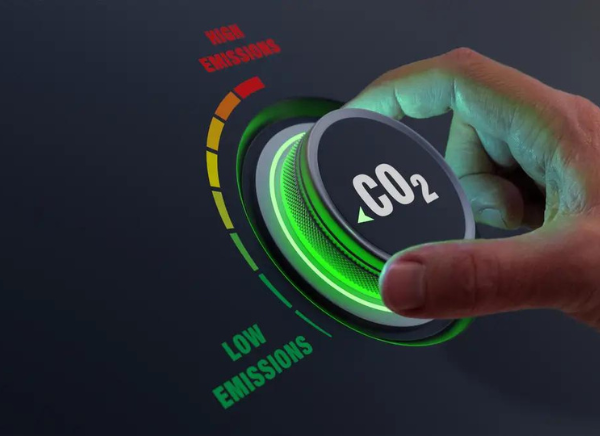
As the frequency and severity of climate-related disasters escalate, their economic toll on communities and businesses deepens. A recent study by CO2 AI and Boston Consulting Group (BCG), titled “Why Some Companies Are Ahead in the Race to Net Zero,” underscores the limited progress made by companies in comprehensively measuring and reducing emissions over the past year. Released ahead of COP28, the study draws on the collaborative efforts of CO2 AI and BCG, building upon their 2021 and 2022 investigations into global businesses’ advancements in emissions measurement and reduction.
Surveying 1,850 executives responsible for emissions measurement, reporting, and reduction across 18 major industries and 23 countries, the study revealed a slow pace of progress. Each surveyed organization boasted at least 1,000 employees and annual revenues ranging from $100 million to over $10 billion.

Shelly Trench,
Managing Director and Partner at BCG.
She emphasized the UAE’s commitment to comprehensive emissions measurement and reduction, aligning with global sustainability goals.
While the United Arab Emirates (UAE) demonstrates leadership in climate action with its UAE Net Zero by 2050 initiative, aiming to achieve net-zero emissions by 2050, global progress remains sluggish.
The survey highlights that a mere 10% of companies now report comprehensively measuring all their emissions, reflecting no improvement compared to the 2022 survey. Furthermore, only 14% of companies claim to have reduced emissions in line with their ambitions over the past five years—a 3 percentage point decrease from 2022. Economic challenges and capital constraints are cited as impediments to reduction efforts.
However, companies making strides in decarbonization experience both financial and non-financial benefits. Top advantages include reputational value, lower operating costs, and regulatory compliance. Notably, 40% of respondents estimate an annual financial benefit of at least $100 million from meeting emissions reduction targets—a 3 percentage point increase from the previous year.
The study observes a positive trend in Scope 3 emissions measurement, with respondents indicating a 19 percentage point increase in partial measurement and reporting since 2021, reaching 53%. Additionally, 35% of respondents have set Scope 3 reduction targets, up by 12 percentage points since 2021, focusing on areas such as waste management and purchased goods and services.
Certain regions showcase improvement in comprehensive emissions measurement. Asia Pacific respondents enhanced reporting of Scope 1, 2, and 3 emissions by 7 percentage points since 2021. South American and North American respondents improved comprehensive reporting of internal emissions (Scopes 1 and 2) by 9 and 5 percentage points, respectively.
Companies successfully reducing emissions align with four key traits: collaborative efforts with suppliers and customers on emissions measurement and reduction, calculation of emissions at the product level, utilization of digital technology in emissions management, and a positive outlook on emissions-reporting regulations as reduction enablers.

Robert Xu, Managing Director and Partner at BCG.
The strategic investment in AI-driven solutions in the GCC showcases innovative approaches to environmental stewardship, reflecting the region’s dedication to leading in sustainable solutions tailored to its unique environmental and economic contexts. Global stakeholders’ growing interest underscores the GCC’s role as a pioneer in integrating technology with sustainability.
